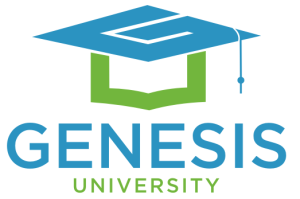EDU 313, Language Development is an undergraduate course designed to equip early childhood professionals with a comprehensive understanding of how young children acquire and develop language and communication skills, as well as the language delays and disorders experienced by some young children. Students will explore the theoretical basis for language acquisition, the stages of language development from birth to age eight, and the impact of family, environmental, and cultural factors on language development. This course is designed for early childhood educators and professionals who seek to deepen their knowledge as they support language development of the young child.
Creative Thinking and the Arts is an undergraduate course exploring the vital role of creative thinking and the arts in early childhood education. Students will examine the developmental benefits of incorporating various art forms into early learning environments, including visual arts, music, drama, and movement. The course emphasizes the importance of fostering creativity and self-expression in young children, highlighting how these practices contribute to cognitive, emotional, social, and motor development. The course covers strategies for integrating arts into the curriculum, assessing creative development, and adapting activities to meet the diverse needs of all children. By the end of the course, students will have a comprehensive understanding of how to leverage creative thinking and the arts to enhance early childhood education, preparing them to create dynamic and enriching learning environments that inspire young learners.
Adapting Curricula is an undergraduate course designed to equip early childhood educators with the skills and knowledge necessary to adapt curricula to meet the diverse needs of young learners. Emphasizing the importance of inclusivity and individualized instruction, this course explores various strategies for modifying and enriching curriculum content to support children of varying abilities, backgrounds, and learning styles.
Participants will learn to assess developmental milestones and identify the unique needs of each child, ensuring that all students can access and benefit from the curriculum. The course will cover the integration of differentiated instruction techniques, culturally responsive teaching practices, and the use of assistive technologies. By the end of the course, educators will be prepared to create engaging, flexible, and inclusive learning experiences that foster the growth and development of all children in their care.
All children can learn mathematics with understanding! Teachers can and must create learning environments in which children have this experience. Effective mathematics instruction involves posing worthwhile tasks that will engage children in the mathematics they are expected to learn. Then, by allowing children to interact with and productively struggle with the mathematics using their ideas and their strategies—a student-centered approach—children will develop a robust understanding of the mathematics. As they learn to see the connections among mathematical topics and to their world, children will value mathematics and feel empowered to use it.
